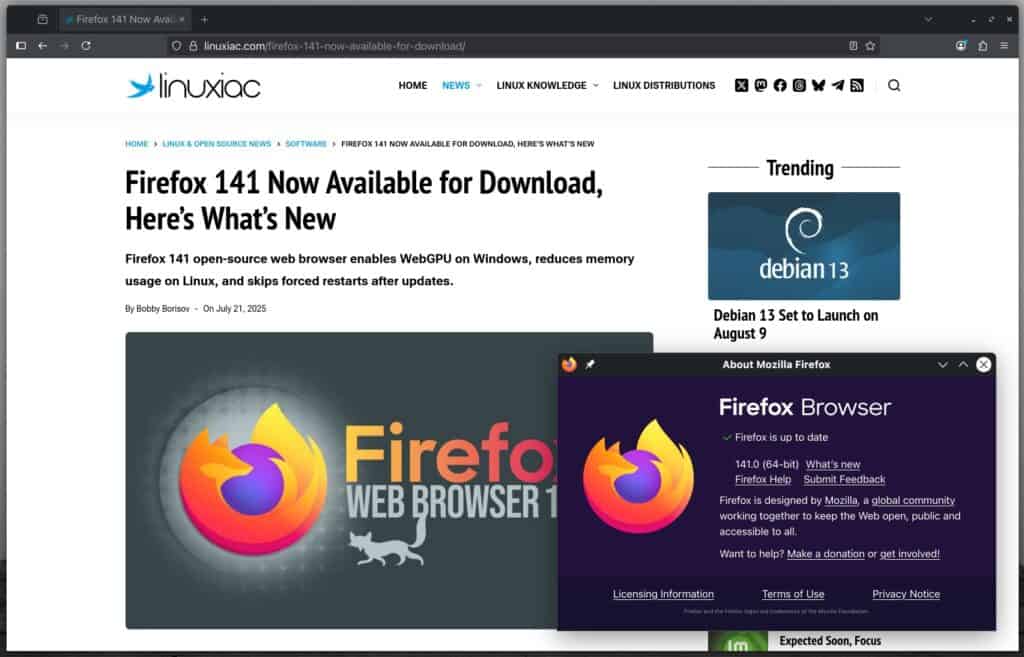Almost a month after releasing version 140, Mozilla has launched Firefox 141, the latest update to its popular open-source web browser, now available for download.
The headline feature in this update is a new local AI-powered tab organizer. Now, Firefox can automatically group similar tabs together and even suggest group names, all thanks to a lightweight AI model that runs entirely on your device.
That means your browsing data stays private—nothing gets sent to the cloud. Mozilla says this “Smart Tabs” feature is rolling out progressively, so users may see it appear over the coming weeks.
In addition to smarter tab management, Firefox 141 also brings a handy improvement for fans of vertical tabs. Users can now resize the tools area at the bottom of the sidebar by simply dragging the divider line, allowing them to show more tabs and tuck away rarely used tools into an overflow menu.
For Linux users, the browser now uses less memory, which is a win on systems where every megabyte counts. Even better, if your package manager applies an update, you won’t need to force-restart Firefox anymore—it’ll handle the update seamlessly in the background.
Moreover, if you’re browsing in Valencian, Firefox now includes a built-in dictionary for the spellchecker, so you won’t have to add one manually.
On the aesthetics side, Windows 11 users will notice that Firefox’s window controls—minimize, maximize, and close buttons—now use the system’s default font icons instead of custom ones.
One of the biggest under-the-hood upgrades is the enabled-by-default WebGPU API on Windows, bringing high-performance graphics and compute capabilities to the browser. This is a big deal for web-based gaming, creative tools, and other GPU-heavy applications.
Early testers report smoother frame times compared to WebGL and faster compute workloads, while Mozilla says Linux and macOS support are on deck once test coverage reaches parity.

For web developers, Firefox 141 packs several useful updates:
- Better cache control: The browser now clears the back/forward cache when receiving a
Clear-Site-Data: "cache"header, giving devs more precise control over cached content. - More dialog control: The new
closedbyattribute (and relatedclosedByproperty) lets developers track how a<dialog>element was dismissed—whether by ESC key, form submission, or another method. - Popover API enhancements:
showPopover()andtogglePopover()now accept anoptions.sourceargument to reference the invoker, whiletogglePopover()also gets aforceoption to explicitly set a popover’s state. - CHIPS is back: Cookies Having Independent Partitioned State (CHIPS) is re-enabled, allowing partitioned cookie storage per top-level site—a win for privacy-focused development.
Those eager to immediately download the latest version of Firefox can do so directly from Mozilla’s server.
Windows and macOS users can expect an over-the-air update within the next day. Users of rolling-release Linux distributions should look for Firefox 140 as an update in their repositories over the next few days.
